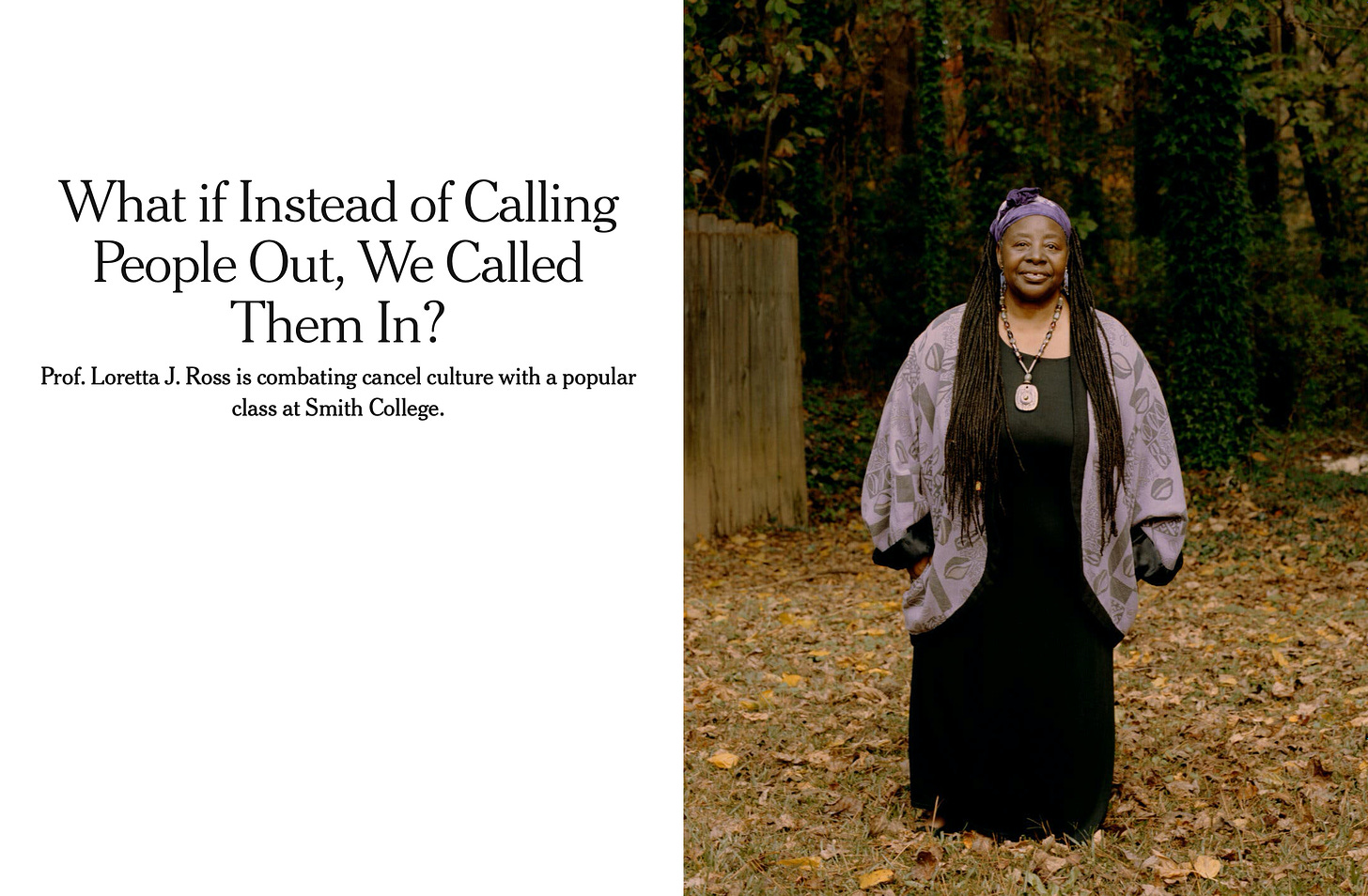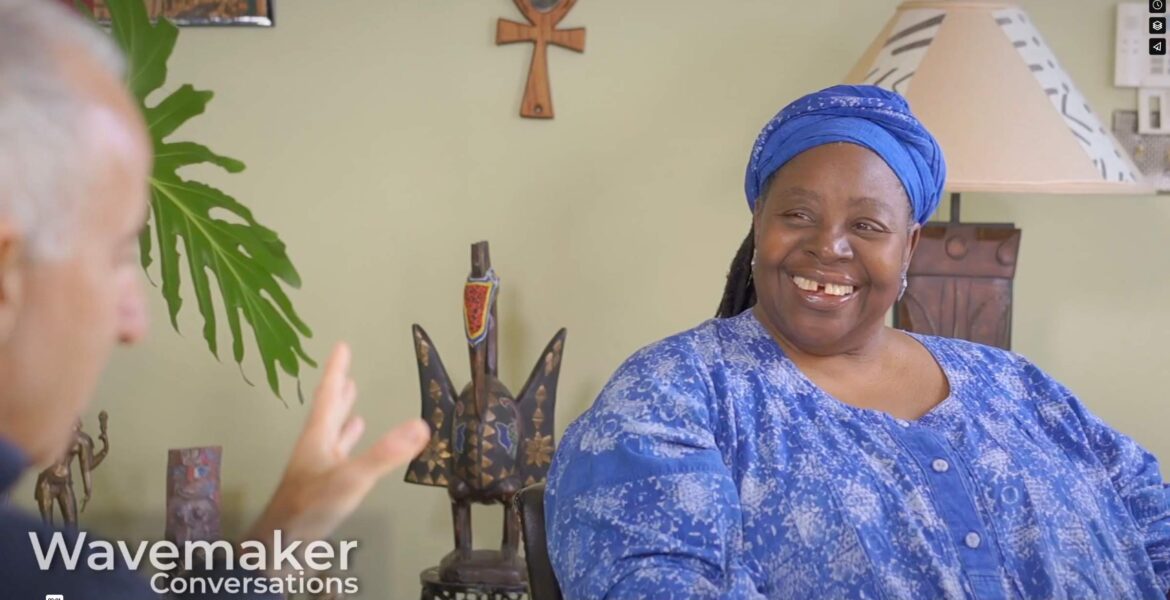I’ve wanted to have a conversation with Professor Loretta J. Ross ever since I read a profile of her in The New York Times:

I also watched her recent TED Talk, which has received 1.8 million views.
Those two fascinating treatments barely scratch the surface of the spirit and hard-earned wisdom of Professor Loretta J. Ross.
I recently visited Professor Ross at her home in Atlanta while she was on a break from Smith College, where she is now a tenured professor.
We talked about how she arrived at a place where “fighting hate should be fun” — and her approach to treating offensive and even harmful comments or behavior as an invitation to a conversation, rather than a trigger to public shaming.
I feel right now, I’m surrounded by a lot of people who are telling me who to hate … that they want somebody canceled or called out…. And there’s a palpable fear that if you don’t give into that, then you’ll be defined as the person who agrees with whatever was homophobic, transphobic, racist or sexist or whatever. So there’s a lot of social pressure to conform with this army of hatred, this army of contempt ….
Professor Ross is teaching her students how to “pursue accountability without anger, hatred and contempt.”
What’s particularly compelling is the life experience she shares with us that led her to this approach.
I hope you will take the time to enjoy our spirited conversation by clicking play on the Vimeo link below.
Among the stories you’ll hear:
- How Loretta Ross became a neo-Nazi’s “deprogrammer” — when he defected from the Aryan Nations — and her role in an informal “underground railroad” for people leaving hate movements;
- Her invitation from wives of the KKK to meet them on a Tennessee mountaintop and provide them with anti-racist training;
- Her advice to social justice and human rights activists — on and off campus — on community organizing and why finding “problematic allies” is a good thing;
- Her formative experience as a member of her Texas junior high debate team;
- How Loretta Ross has dealt with multiple personal traumas and emerged with her sense of humor intact;
- The crime that she committed more than four decades ago and kept a secret — until she was advised to “run and tell it first” before someone else does;
- The poem that speaks to Loretta Ross more than anything else she has read.
I hesitated to release this conversation in the midst of Russia’s invasion of Ukraine. That’s pretty much all I’ve been able to think about this past week.
And then I thought of how important this conversation is — in the context of war and instability and large scale inhumanity — as we search for ways to communicate with each other that tap into the values that so many of us share.
That is the territory where Loretta Ross is most powerful.
If you prefer to listen, rather than watch, here’s the podcast version.
If, after experiencing this episode, you would like to engage in your own conversation with Loretta Ross, check out her website and sign up for her next Zoom event here.
And keep your eye out for her book, Calling In the Calling Out Culture, due to be published by Simon & Schuster in the fall.

